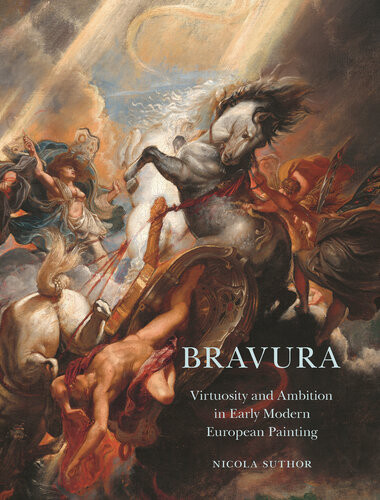

Most ebook files are in PDF format, so you can easily read them using various software such as Foxit Reader or directly on the Google Chrome browser.
Some ebook files are released by publishers in other formats such as .awz, .mobi, .epub, .fb2, etc. You may need to install specific software to read these formats on mobile/PC, such as Calibre.
Please read the tutorial at this link: https://ebookbell.com/faq
We offer FREE conversion to the popular formats you request; however, this may take some time. Therefore, right after payment, please email us, and we will try to provide the service as quickly as possible.
For some exceptional file formats or broken links (if any), please refrain from opening any disputes. Instead, email us first, and we will try to assist within a maximum of 6 hours.
EbookBell Team

5.0
50 reviewsThe first major history of the bravura movement in European painting
The painterly style known as bravura emerged in sixteenth-century Venice and spread throughout Europe during the seventeenth century. While earlier artistic movements presented a polished image of the artist by downplaying the creative process, bravura celebrated a painter’s distinct materials, virtuosic execution, and theatrical showmanship. This resulted in the further development of innovative techniques and a popular understanding of the artist as a weapon-wielding acrobat, impetuous wunderkind, and daring rebel. In Bravura, Nicola Suthor offers the first in-depth consideration of bravura as an artistic and cultural phenomenon. Through history, etymology, and in-depth analysis of works by such important painters as Franҫois Boucher, Caravaggio, Francisco Goya, Frans Hals, Peter Paul Rubens, Tintoretto, and Diego Velázquez, Suthor explores the key elements defining bravura’s richness and power.
Suthor delves into how bravura’s unique and groundbreaking methods―visible brushstrokes, sharp chiaroscuro, severe foreshortening of the body, and other forms of visual emphasis―cause viewers to feel intensely the artist’s touch. Examining bravura’s etymological history, she traces the term’s associations with courage, boldness, spontaneity, imperiousness, and arrogance, as well as its links to fencing, swordsmanship, henchmen, mercenaries, and street thugs. Suthor discusses the personality cult of the transgressive, self-taught, antisocial genius, and the ways in which bravura artists, through their stunning displays of skill, sought applause and admiration.
Filled with captivating images by painters testing the traditional boundaries of aesthetic excellence, Bravura raises important questions about artistic performance and what it means to create art.